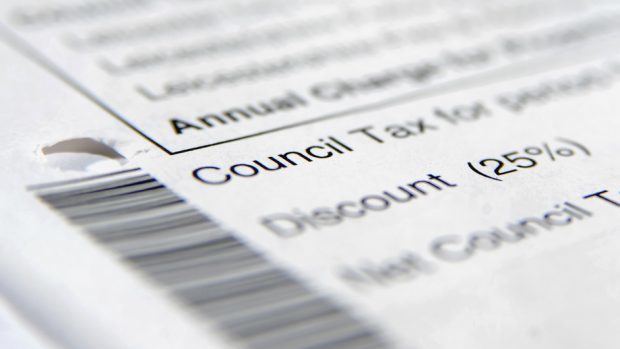More than 95% of households exempt from council tax increases in Scotland are still paying for the hike in costs.
Freedom of information requests made by Scottish Labour revealed that only 2,000 of a possible 54,000 people are taking advantage of legislation designed to protect those on low incomes.
The revelations come in the wake of cash-strapped local authorities across the north and north-east upping the levy as part of their recent budget agreements.
Highland, Moray and Aberdeenshire councillors all voted in favour of increasing the tax by 3% as a way of recouping funds last month.
And Aberdeen City Council’s administration group aims to increase it by that amount when members meet to set the authority’s 2018/19 budget tomorrow.
In the face of upcoming increases, the Scottish Government introduced a scheme to protect low income households being hit by council tax band changes.
Labour MSP for Central Scotland, Mark Griffin, obtained the figures revealing the low uptake of the scheme and claimed they demonstrated that the SNP was “not up to the job of helping Scotland’s poorest”.
He said: “Struggling families and pensioners are missing out on key support and facing massive council tax bills as a result of this.
“These figures show once again the SNP likes to talk the talk on poverty, but isn’t up to the job of helping Scotland’s poorest.
“We need to see more action from the SNP to boost take-up and get people the support they deserve.”
A spokeswoman for the Scottish Government argued that “bold measures” were being taken to reduce poverty and encouraged more people to protect themselves from increases.
She said: “We are taking forward bold measures to tackle the underlying causes of poverty and inequality, including our recently passed Child Poverty Act.
“We encourage anyone who thinks they might be eligible for either the council tax reduction or the low income household exemption to contact their local authority.”
The council tax reduction scheme affects those on low incomes with homes in bands E to H, which were increased by the Scottish Government from April 2017.
Single person households with net income of up to £16,750 and all other households with net income of up to £25,000 and less than £16,000 in savings are eligible to apply for a full exemption from the increased charge.
